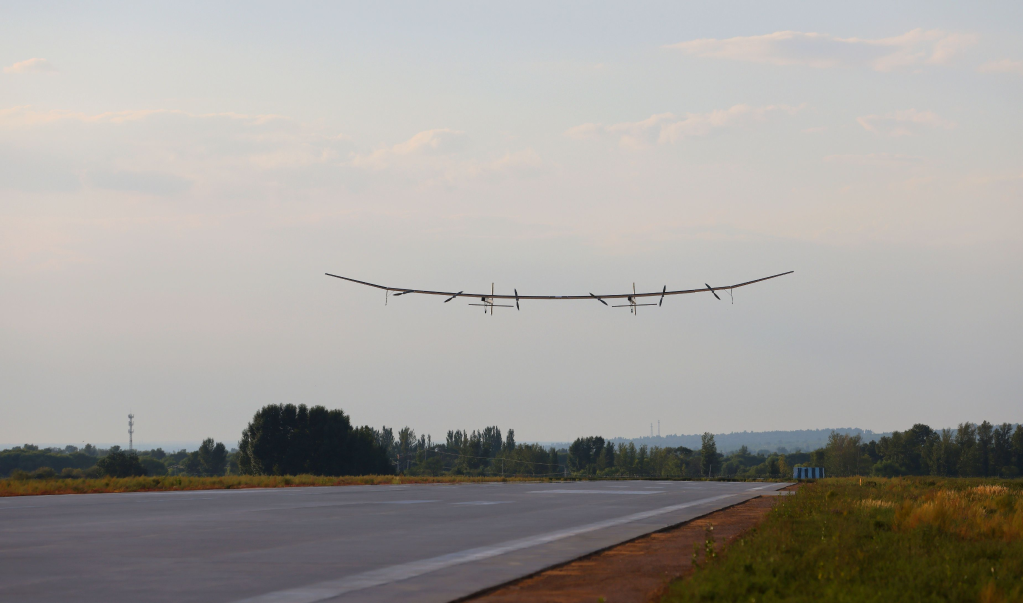
Photo provided by the Aviation Industry Corporation of China shows the QMX50 large solar-powered unmanned aerial vehicle (UAV) in the flight.
BEIJING, Sept. 4 (Xinhua) -- China's independently-developed QMX50, a large solar-powered near-space unmanned aerial vehicle (UAV), made its successful maiden flight in Yulin, northwest China's Shaanxi Province, on Saturday, the Aviation Industry Corporation of China (AVIC) said Sunday.
The QMX50 took off at 5:50 p.m. and landed safely after a 26-minute flight, according to the AVIC, the country's leading planemaker.
The QMX50 is developed by the AVIC First Aircraft Institute and the aircraft's system components were all in good condition after the successful maiden flight, the AVIC said.
It is the first high-altitude low-speed UAV with a super-high aspect ratio, first large UAV model with a twin-fuselage configuration and first large all-electric UAV platform solely driven by solar power developed by the AVIC, according to the Chinese planemaker.
The QMX50 large UAV can carry out high-altitude and long-endurance flight missions by using efficient and green solar power.
It can carry out diverse airborne missions, including high-altitude reconnaissance, forest fire monitoring, atmospheric environment monitoring, geographical mapping and communication relay, among others.
The successful maiden flight of the QMX50 has laid a solid foundation for the further development of large solar-powered UAVs, said the AVIC, adding it will help China's development of new energy, composite materials and flight control technologies and enhance its capabilities in carrying out near-space missions.




 A single purchase
A single purchase









